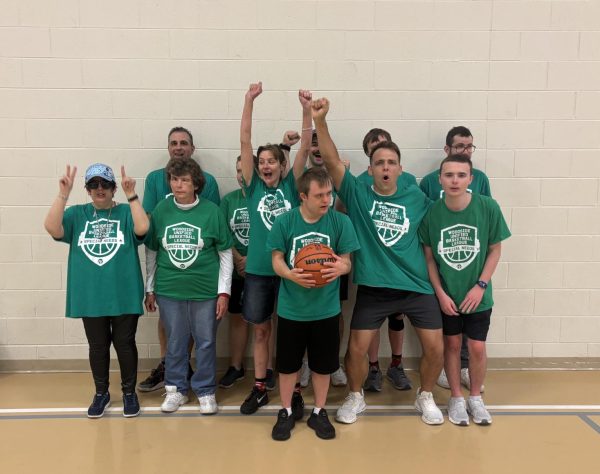Post bach student spreads awareness about stuttering

CameronFrancek color
Oakland University student Cameron Francek has been introducing himself to at least one new person every day for the past two months.
“I’m Cameron, and I’m a person who stutters,” he’ll say.
He’s taken on a personal project to talk to people about stuttering, spreading awareness in the process then blogging about the experience on his site www.100stutterProject.blogspot.com.
Francek, a post-bachelor student studying actuarial science, said it felt like the right time to take on his project.
From complete strangers to classmates and coworkers to friends who don’t know much about stuttering, Francek is trying to open up communication about the topic.
“If I’m not open about it and I’m quiet, I think it’s hard for others to ask about it,” he said.
Outgrowing insecurity
Francek said it was more difficult in high school, and many people who stutter are teased or have an especially hard time during their younger years. As he’s gotten older, though, coping with stuttering has gotten easier.
“There are those times in high school when all people are insecure about things,” he said. “After I got out of high school and college, I just kind of stopped caring about a lot of it.”
Francek got his bachelor’s degree in speech pathology from Michigan State University before studying at OU.
“Coming from a school like MSU to a place like Oakland, I think it is a little harder to engage with people because it’s a commuter school,” Francek said.
One of Francek’s personal challenges is talking to his teachers, because it’s most stressful talking to people he’s trying to impress. And he wants his classmates to understand what’s happening if he does stutter in class.
“It is always hard talking to peers about it because you are trying to impress people in school, and you don’t want them to think you aren’t intelligent,” he said. “That’s why it’s so important for me to educate them.”
Setting the record straight
People who have never been exposed to stuttering have asked Francek if he has Tourette syndrome or jumped to other conclusions.
“I want to be sure they understand exactly what it is,” he said.
An important point Francek always tries to stress is that stuttering is only a small part of who he is.
“It’s not ‘I have a stutter’, it’s not ‘I’m a stutterer’, it’s ‘I’m a person who stutters’,” he said.
Stuttering is not triggered by stress or nerves or lack of preparation, contrary to what many believe.
“I think a lot has to do with attitude, a lot has to do with how people are educated about it,” he said.
Francek said people at his work have been supportive and continue to ask about the project.
“I think I hadn’t ever told them, but I’m sure people can tell,” Francek said. “I think it’s kind of naïve to think that I can hide it.”
He attempted the project a couple of years ago but stopped eight days in. This time around, he was in a better place and has been successful.
“I’m not sure what came over me but it’s just one of those things where I said, ‘I have to do this’,” he said.
He gives everyone he talks to a link to his blog and a small sheet of paper explaining several common misconceptions about stuttering.
“After people understand I’m not asking really for anything, they’re pretty cool about it.”
Being a positive influence
Once a month, Francek meets with a support group in Royal Oak.
“There are a lot of people who stutter who are still scared about things, and they don’t enjoy talking about it, and they try to hide it,” Francek said.
Bernie Weiner, support group peer and former National Stuttering Association chapter leader, said Francek’s project is unique.
“We have a lot of people in our support group who advertise their stuttering, but not to that extent,” Weiner said. “It takes a lot of courage to do what Cameron’s doing.”
In the first half of his project, his blog has had over 2,000 views.
“I didn’t know how it’d go, but all the people I’ve talked to have been extremely positive, and I’ve heard from a ton of people that stutter how happy they are that I’m doing it,” he said.
Francek said it’s been rewarding to be able to better inform friends who have never been comfortable enough to ask about stuttering.
“People respect what I’m hoping to do, and then in turn they feel comfortable exressing their questions or concerns or their challenges as well,” Francek said.
Francek will present his experience at the NSA’s conference in Arizona this year.
“When you put yourself out there, I think people appreciate that,” he said.
He’s gone to the annual conference the past four years and hopes to inspire other people who stutter to confront their insecurities.
“I think any time you take on a challenge that you weren’t positive you can accomplish, you do end up learning things about yourself,” he said.





